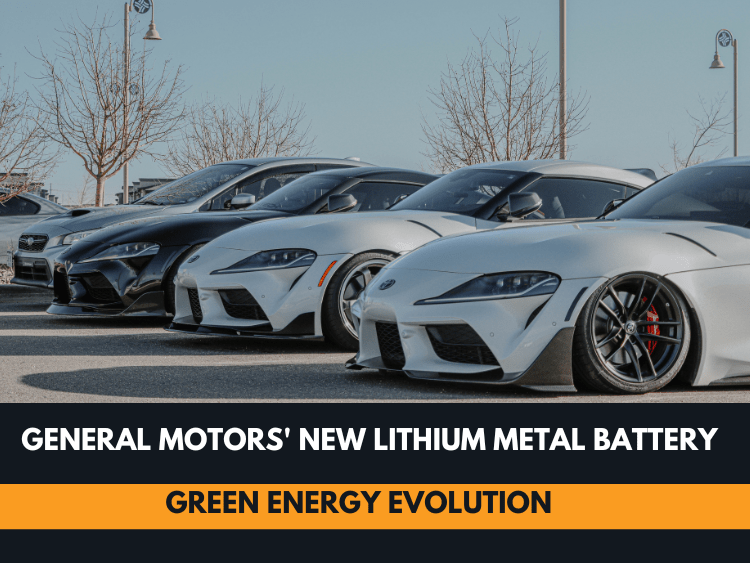People are increasingly preferring ecologically friendly items as they get more understanding about sustainability. Electric vehicles are a prime illustration of this trend. They are an excellent substitute for petrol vehicles. Almost every automobile manufacturer is now trying to advance electric vehicle technology in order to provide consumers with a better experience in a sustainable manner.

General Motors, a well-known Automotive manufacturer seems to be way ahead when it comes to battery invention. They disclosed their work on the new Lithium metal batteries that have the potential to reshape our perception of electric vehicles.
This blog article will go into the specific properties of Lithium Metal batteries that distinguish them from Lithium-ion equivalents, emphasizing the reasons why they provide a superior alternative for the future of electric cars.
You may also like to read: The Ultimate Guide: How Long Will Your Electric Car Battery Endure?
General Motors’ Vision for Next-Generation Lithium-Metal Batteries:
General Motors (GM) is working on a revolutionary lithium-metal battery cell prototype that might revolutionize the electric vehicle (EV) market. Solid Energy Systems (SES), a lithium-metal battery startup, has collaborated with the corporation to create next-generation battery cell prototypes. The new battery cell is expected to feature a combination of affordability, high performance, and energy density.

The Power of Lithium-Metal Batteries: Expanding Driving Range and Enhancing Performance
Nowadays, lithium-metal batteries are becoming increasingly popular because of their remarkable attributes: an extended driving range and enhanced performance, all while being more economically viable than lithium-ion batteries. One notable advantage is their cost-effectiveness, as they eliminate the need for costly materials like Nickel. In recent years, the price of Nickel has soared, surpassing even the value of gold. However, the avoidance of Nickel is primarily motivated by concerns surrounding its stability and potential hazards if not handled properly.
Researchers have been diligently exploring new chemistries to enhance battery performance. However, these advancements often faced challenges related to stability and shorter lifespan when compared to existing lithium-ion batteries. However, in a groundbreaking development, General Motors announced last year that they had successfully developed a lithium metal battery with stability comparable to conventional lithium-ion batteries.
Notably, this innovative battery retained 80% of its initial capacity after nearly 700 charge and discharge cycles. The most exciting aspect is that it has undergone rigorous testing and validation beyond the confines of the laboratory setting.
General Motors’ commitment to a greener future:
GM CEO Mary Barra stated that the business is dedicated to an all-electric future and is investing extensively in EV technologies. In addition, the business announced a strategic investment and commercial partnership with Controlled Thermal Resources to procure local and low-cost lithium for its next-generation EV batteries. This lithium will be extracted using a closed-loop, direct extraction method, which results in a reduced physical footprint, no production tailing, and lower carbon emissions.
Looking Ahead:
By 2025 the improved battery cell should be available in GM’s electric cars. This development could revolutionize the EV industry by making electric vehicles more affordable and accessible to consumers. It could also help reduce carbon emissions and promote sustainability. We look forward to seeing how this technology develops in the coming years.
For more such blogs please visit Envoybuzz

